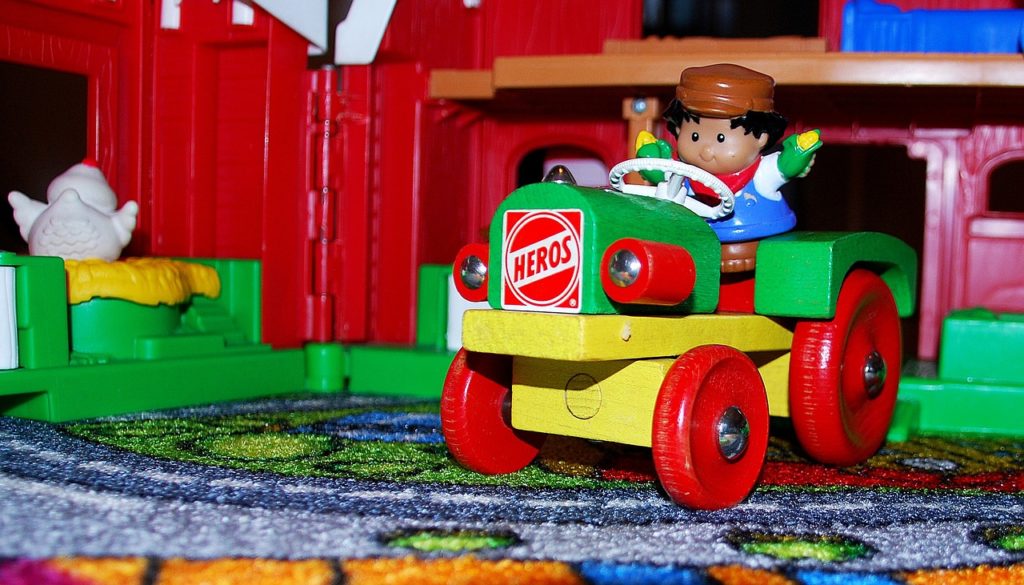The Importance of Play for Kids
Play is an essential part of a child’s development, providing numerous benefits that contribute to their overall growth and well-being. Engaging in games specifically designed for kids can be a fun and effective way to foster their development. Let’s explore some of the key reasons why playing games is important for kids.

Benefits of Playing Games
Playing games offers a wide range of benefits for children. It helps them develop important social, emotional, and physical skills while promoting their overall happiness and well-being. Some of the key benefits of playing games include:
- Physical Development: Games that involve physical activity, such as running, jumping, or throwing, help children develop gross motor skills and improve their coordination, balance, and strength.
- Cognitive Development: Many games require problem-solving, critical thinking, and decision-making skills. By engaging in these activities, children enhance their cognitive abilities, including memory, attention, and logical reasoning.
- Emotional Development: Games provide children with an opportunity to express their emotions, learn to take turns, and practice good sportsmanship. They also help children develop resilience and cope with challenges in a positive and healthy manner.
- Social Skills: Playing games with others fosters social interaction, cooperation, and teamwork. Children learn how to communicate, negotiate, and collaborate with their peers, which are essential skills for building relationships and navigating social situations.
- Creativity and Imagination: Many games encourage children to use their imagination, creativity, and problem-solving skills. This helps promote their cognitive flexibility and nurtures their ability to think outside the box.
Creating Bonding Moments
Playing games with kids creates valuable bonding moments between parents and their children. It allows for quality time spent together, strengthening the parent-child relationship. By actively engaging in games, parents show their support, love, and interest in their child’s activities, fostering a sense of connection and trust.
Enhancing Cognitive Development
Playing games can have a positive impact on a child’s cognitive development. Games that involve puzzles, memory challenges, or strategy-building exercises help improve their concentration, memory retention, and problem-solving skills. These activities stimulate their brain and encourage them to think critically, leading to enhanced cognitive abilities.
By incorporating a variety of fun kids games into a child’s routine, parents can provide them with a well-rounded developmental experience. Whether it’s classic games, active outdoor games, creative and imaginative games, or educational games, each type offers unique opportunities for growth and learning. To explore more game options, check out our articles on cooking games for kids, party games for kids, board games for kids, and more.
Remember, the ultimate goal is to provide children with a fun and engaging experience that contributes to their development while creating lasting memories.
Classic Kids Games
When it comes to fun kids games, classic options never go out of style. These games have been enjoyed by generations of children and continue to bring laughter and joy to kids today. In this section, we will explore three timeless favorites: Simon Says, Duck, Duck, Goose, and Musical Chairs.
Simon Says
Simon Says is a game that challenges kids to follow instructions while testing their listening skills and coordination. One person takes on the role of “Simon” and gives commands starting with the phrase “Simon says.” For example, “Simon says, touch your nose” or “Simon says, hop on one foot.” Players must only perform the actions when the command is preceded by “Simon says.” If Simon gives a command without saying “Simon says,” and a player still performs the action, they are out of the game. The last player remaining becomes the next Simon.
Simon Says encourages active participation and helps improve listening and concentration skills. It’s a great game to play indoors or outdoors and can be enjoyed by kids of all ages.
Duck, Duck, Goose
Duck, Duck, Goose is a lively game that gets kids moving and laughing. Players sit in a circle, and one child is chosen as the “goose.” The goose walks around the outside of the circle, gently tapping each player on the head, saying “duck” with each tap. At any point, the goose can tap a player and call out “goose” instead. The chosen player then becomes the new goose and must chase the previous goose around the circle, trying to tag them before they reach the vacant spot. If the previous goose makes it back to the empty spot without being caught, they continue as the goose for another round.
Duck, Duck, Goose promotes physical activity, social interaction, and decision-making skills. It’s a fantastic game for group play and can be enjoyed both indoors and outdoors.
Musical Chairs
Musical Chairs is a classic game that combines music, movement, and strategy. Chairs are arranged in a circle, one less than the number of players. When the music starts playing, players walk or dance around the chairs. As soon as the music stops, everyone must find a seat. The player left without a chair is eliminated. One chair is then removed, and the game continues until only one player remains seated, declaring them the winner.
Musical Chairs encourages physical activity, develops listening skills, and teaches children about turn-taking and resilience. It’s a popular game for parties and gatherings, and it can be enjoyed both indoors and outdoors.
By introducing these classic games to your children, you can create cherished memories and provide them with opportunities for fun, laughter, and social interaction. Remember to choose games that are age-appropriate and consider the number of players involved to ensure an enjoyable experience for everyone.
Active Outdoor Games
When it comes to keeping kids active and engaged, active outdoor games are a fantastic way to unleash their energy while having a blast. These games not only provide physical exercise but also encourage social interaction and teamwork. Here are three popular active outdoor games that kids love:
Tag
Tag is a timeless classic that never fails to entertain kids of all ages. In this game, one player is designated as “it,” and their goal is to chase and tag other players, who then become “it.” The game continues until everyone has had a turn being “it” or until players agree to end the game.
Tag can be played in various ways, such as freeze tag, where tagged players must freeze in place until another player tags them to unfreeze. Another variation is flashlight tag, which is played in the dark using flashlights to tag players. Get creative and adapt the rules to make it even more exciting!
Capture the Flag
Capture the Flag is an exhilarating game that promotes teamwork and strategy. Divide players into two teams and designate each team’s territory. Each team has a flag that they must protect while trying to capture the opposing team’s flag.
The objective is to navigate the playing field, avoid being caught by the opposing team, and successfully capture their flag without being tagged. Communication and teamwork are vital to create diversionary tactics and defend your own flag. Capture the Flag is a game that keeps kids engaged and active for hours.
Red Rover
Red Rover is a classic game that encourages teamwork, strength, and coordination. Players are divided into two teams and stand in parallel lines, facing each other. The teams take turns calling out a player from the opposing team by saying, “Red Rover, Red Rover, send [player’s name] right over.”
The called player runs at full speed and tries to break through the linked arms of the opposing team. If successful, they choose one player from the opposing team to join their team. If they fail to break through, they join the opposing team. The game continues until one team successfully recruits all the players from the other team.
By incorporating these active outdoor games into your child’s playtime, you can ensure they have fun while staying active and developing essential social and physical skills. Remember to provide a safe playing environment and encourage fair play and sportsmanship. For more game ideas and inspiration, check out our articles on cooking games for kids, party games for kids, board games for kids, card games for kids, and math games for kids.
Creative and Imaginative Games
Incorporating creative and imaginative games into playtime can ignite your child’s creativity, encourage self-expression, and provide hours of laughter and entertainment. These games allow children to explore their imaginations, think outside the box, and bring their unique ideas to life. Here are three popular creative and imaginative games that your child is sure to enjoy: Treasure Hunt, Charades, and Puppet Show.
Treasure Hunt
Treasure Hunt is a thrilling game that combines problem-solving, teamwork, and adventure. To set up a treasure hunt, you can create a series of clues or riddles that lead your child to different locations in search of a hidden treasure. The treasure can be a small prize or even a homemade treat. This game not only sparks excitement but also enhances critical thinking and decision-making skills. Your child will love the thrill of deciphering clues and embarking on a treasure-hunting quest.
Charades
Charades is a classic game that encourages creativity, communication, and teamwork. It’s a game where players take turns acting out a word or phrase without speaking, while the others try to guess what it is. The words or phrases can be anything from animals and movie titles to everyday actions. Charades promotes imagination, body language, and verbal skills. It’s a fantastic game to play as a family, fostering laughter and bonding moments. To make it more kid-friendly, you can use picture cards or words appropriate for their age group.
Puppet Show
Puppet Show is a delightful game that lets your child become a storyteller and performer. Encourage your child to create their own puppets using socks, paper bags, or even simple hand-drawn characters. They can design the puppets and give them unique personalities. Set up a stage using a table or a cardboard box. Your child can then put on a puppet show using their imagination to create engaging stories. This game helps develop storytelling skills, boosts confidence, and nurtures creativity. You can even join in the fun by creating your own puppet characters and putting on a family puppet show.
By incorporating these creative and imaginative games into your child’s playtime, you provide them with opportunities to explore their creativity, enhance their communication skills, and have a blast in the process. Remember, the focus is on fostering imagination and self-expression, so let your child’s creativity shine. For more game ideas and inspiration, check out our articles on cooking games for kids, party games for kids, and board games for kids.
Educational Games
Incorporating educational games into playtime not only provides entertainment but also stimulates children’s cognitive development and learning abilities. Here are three popular educational games that can engage and challenge kids in a fun and interactive way:
Memory Match
Memory Match is a classic game that helps improve children’s memory and concentration skills. The game consists of a set of cards with matching pairs. Players take turns flipping over two cards at a time, trying to find matching pairs. If a pair is found, the player keeps the cards and earns a point. The game continues until all the cards have been matched.
Memory Match encourages children to focus, remember patterns, and develop their visual recognition abilities. It can be played with various themes, such as animals, letters, or numbers, making it both educational and entertaining. For more memory-boosting games, check out our article on memory games for kids.
Scrabble Junior
Scrabble Junior is a simplified version of the classic word game, designed specifically for younger children. The game features a double-sided board, with one side offering a pre-printed crossword grid and the other side allowing kids to create their own words.
Scrabble Junior helps children develop their vocabulary, spelling, and reading skills. By forming words and earning points, kids learn about letter recognition, word formation, and basic strategy. The game also encourages social interaction and friendly competition. To explore more word-related games for kids, visit our article on word games for kids.
Math Bingo
Math Bingo is an engaging game that combines the excitement of bingo with mathematical learning. The game involves a bingo card filled with numbers and mathematical equations. A caller announces numbers or equations, and players mark the corresponding spaces on their cards. The goal is to complete a line or a pattern on the bingo card.
Math Bingo helps children improve their number recognition, basic arithmetic skills, and problem-solving abilities. It makes learning math enjoyable and interactive, while also fostering a sense of competition and concentration. Discover more math-related games for kids in our article on math games for kids.
By introducing educational games like Memory Match, Scrabble Junior, and Math Bingo, parents can make learning a fun and interactive experience for their children. These games not only provide entertainment but also contribute to the development of important cognitive skills. Remember to choose age-appropriate games that align with your child’s learning level and interests.
Tips for Choosing and Playing Kids Games
When it comes to choosing and playing kids games, there are a few important factors to consider. By keeping these tips in mind, you can ensure that the games you select are not only entertaining but also appropriate for your child’s age and skill level. Let’s explore some valuable tips for a fun and enjoyable gaming experience.
Age-Appropriate Games
One of the key considerations when choosing kids games is selecting ones that are age-appropriate. Games designed for specific age groups are tailored to match the developmental milestones and abilities of children at different stages. It’s important to check the recommended age range provided by the game manufacturer or consult reliable sources for guidance. For example, if you’re looking for cooking games, you can visit our article on cooking games for kids for age-appropriate options.
By selecting games that align with your child’s age, you can ensure that they are able to fully engage with the game and enjoy the experience. Age-appropriate games also provide opportunities for learning and skill development that are suitable for your child’s current stage of development.
Adapting Games for Different Skill Levels
While age-appropriate games are important, it’s also crucial to consider the skill level of your child. Children progress at different rates, and some may require games that are slightly more challenging or less complex than others in their age group. It’s essential to be flexible and adapt games to meet your child’s individual needs.
To adapt games for different skill levels, you can modify the rules or introduce variations that make the game more suitable for your child’s abilities. For instance, if playing a card game, you can start with a smaller deck or allow your child to have a peek at the cards before making decisions. This helps to build their confidence and keeps them engaged in the game.
Creating a Fun and Safe Environment
When playing kids games, it’s important to create a fun and safe environment that encourages participation and enjoyment. Ensure that the playing area is clear of any potential hazards, providing ample space for movement and interaction. Remove any fragile or valuable items that may be accidentally damaged during play.
Additionally, establish clear rules and expectations for behavior during the game. Encourage good sportsmanship, fair play, and respectful communication among all participants. This fosters a positive and inclusive environment where everyone can have fun and feel comfortable.
Remember, the goal of playing games with your child is to have a good time, create lasting memories, and promote their overall development. By selecting age-appropriate games, adapting them to match your child’s skill level, and creating a safe and enjoyable atmosphere, you can ensure that every gaming experience is a joyful and enriching one.
For more game ideas in various categories, such as party games, board games, math games, and more, you can explore our collection of articles on kids games for further inspiration.
Image by tookapic from Pixabay






5 COMMENTS